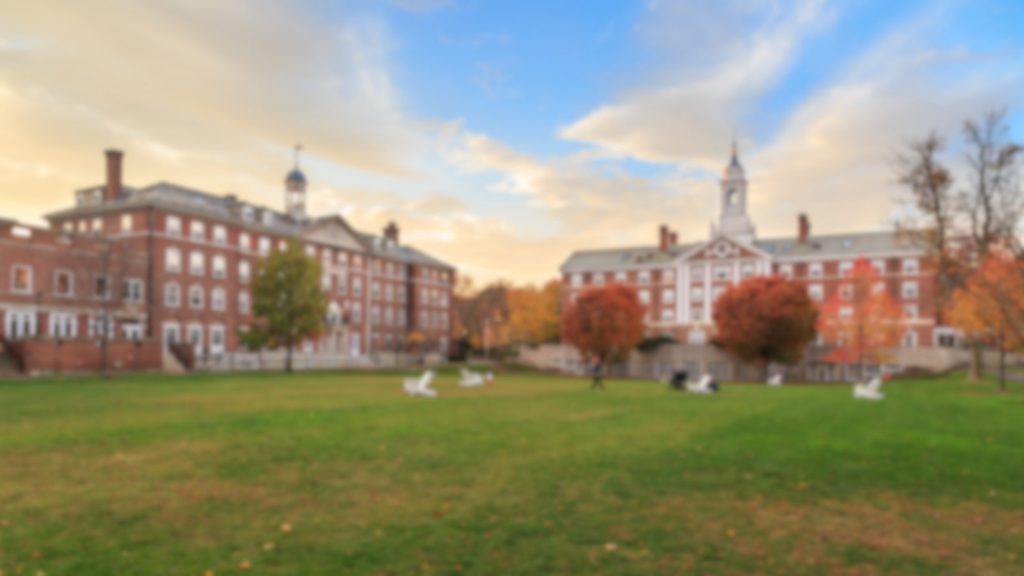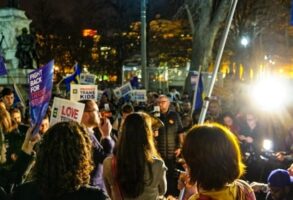
Published December 7, 2015
The slowly metastasizing assault on free speech that has played out on American college campuses since the 1960s has reached a crisis point. What’s needed is a concrete plan to restore liberty of thought and discussion to the American academy — a plan capable of focusing the support of sympathetic students, faculty, parents, alumni, administrators, trustees, and citizens, and their elected representatives. I offer here the outlines of such a program.
The greatest difficulty faced by those who support the ideal of intellectual freedom is locating levers for change on campuses where the greater part of the faculty and administrators have either abandoned classic liberal ideals or forsaken their defense. The actual mechanics of restoring freedom of speech are not mysterious. Campuses need to forthrightly identify liberty of thought and discussion as their central value, educate students in this principle, and energetically guard against its violation. But how can we restore freedom of speech when so many of those charged with its defense on campus have either turned against it or subordinated it to other ideals?
While it is true that a great many faculty members have rejected classic liberal values, other faculty — and especially many students — have not. To a considerable extent, a willful faction of students and allied faculty has succeeded in intimidating the larger number of students who continue to adhere to classic liberalism. Our goal must be to marshal support from the broader public for this weakened and wavering yet potentially powerful majority of students. We need a program that can simultaneously energize a movement of students on campus and marshal concrete support from the broader public.
The greatest advantage enjoyed by supporters of free speech is that the public outside of the universities — liberals and conservatives alike — continues to uphold the ideal of intellectual freedom. The most powerful way to activate that support is by way of state university systems. State legislatures have the ability to establish and reinforce the core values of their respective university systems, and any such initiatives would have consequences far beyond public institutions.
Many of the proposals listed below can be mandated for public universities by state legislatures. These proposals can also galvanize student activism on campuses across the country, as well as activism by faculty, parents, alumni, administrators, trustees, and citizens. Alumni can press their alma maters to adopt these proposals, on pain of losing donations. Citizens can press their state legislators to adopt these proposals, on pain of losing votes. Here is the program:
First: Colleges and universities ought to adopt a policy on freedom of expression modeled on Yale’s Woodward Report of 1974, which identifies ensuring intellectual freedom in the pursuit of knowledge as the primary obligation of a university. While the Woodward Report forthrightly acknowledges the importance of solidarity, harmony, civility, and mutual respect to campus life, it unmistakably marks these values as subordinate in priority to freedom of expression. In accordance with this, the Woodward Report rejects the proposition that members of an academic community are entitled to suppress speech they regard as offensive.
Of course, within a university, the need for intellectual freedom is in the service of the pursuit of knowledge. Freedom of expression is a critical consideration, yet does not in itself fully resolve issues like the structure of the college curriculum. That said, the Woodward Report can and should serve as a model for statements on free expression at our colleges and universities. Once adopted, new statements on freedom of expression would supersede and replace any pre-existing speech codes.
Second: Colleges and universities need to systematically educate members of their community in the principles of free expression. The central theme of freshman orientation, for example, ought to turn around the primacy of free speech. Many colleges and universities now assign incoming freshman a “common reading” to complete over the summer before entering school. During freshman year, colleges organize seminars and guest-lectures around that reading. The National Association of Scholars has reported on the thin and tendentious nature of many common reading selections, and I have commented on their politicization. As an antidote to such problems, colleges should consider assigning John Stuart Mill’s On Liberty as a common reading for entering freshmen.
Responding to threats to intellectual freedom at Princeton, a student group, the Princeton Open Campus Coalition, recently called for bringing more representatives of seldom-heard viewpoints to campus. Inviting outside speakers to address John Stuart Mill’s argument for liberty of thought and discussion during freshman orientation would be an easy way to draw unconventional voices to campus. At every level of the university, efforts should be made to invite both outsiders and insiders to study, discuss, and debate the scope and meaning of free speech.
Political philosopher Peter Berkowitz recently floated the idea of establishing university centers for the study and practice of free speech. These centers would “foster an understanding of free speech and its indissoluble connection with liberal education.” The founding of such centers on our campuses should become a priority.
Third: “A university administration’s responsibility for assuring free expression imposes further obligations: it must act firmly when a speech is disrupted or when disruption is attempted; it must undertake to identify disruptors, and it must make known its intentions to do so beforehand.”
The above passage is from Yale’s Woodward Report. Although the Woodward Report is official university policy at Yale, some of its central recommendations are apparently not being taken seriously.
Consider the recent controversy over freedom of speech at Yale, where a student had to be dragged out of a lecture hall by a police officer after disrupting the William F. Buckley, Jr. Program’s conference on free speech (video here).
The conduct of this student would appear to be a violation of Yale’s Undergraduate Regulations on “peaceful dissent, protests, and demonstrations” (derived from the Woodward Report), which bar any member of the University community from preventing “the orderly conduct of a University function or activity, such as a lecture, meeting…or other public event,” on pain of potential suspension or expulsion.
If Yale’s regulations were being properly enforced, this student would have faced a disciplinary hearing. Ultimately, if the facts turned out to be as they appear from the video and published reports, some sort of discipline would result — at minimum, a warning that any further such actions would bring certain suspension or expulsion.
To all appearances, no such discipline has taken place. And appearances are important, because a core recommendation of the Woodward Report is that in order to serve as effective deterrents to further violations, sanctions for disruption of speech must be publicized. (I have submitted a series of questions to Yale’s administration on disciplinary proceedings related to the disruption at the Buckley Program conference on free speech, and will report when I receive a reply.)
We take it for granted nowadays that conduct like this student’s disruption of the Yale free-speech conference — and conduct far worse — entails no consequences for students. If we are to restore free speech to our campuses, that needs to change. In the absence of a deeper understanding of the principles of free expression, discipline alone will not be effective. Yet in combination with broader education in the principles of intellectual freedom, discipline for interference with campus speech can be very effective indeed. We will not see freedom of speech on our campuses until disruptors face discipline for silencing, or attempting to silence, others.
Fourth: College and university trustees must monitor administrators to ensure that they promote and defend freedom of expression. Thomas D. Klingenstein, chairman of the board of the Claremont Institute, recently suggested that college and university trustees establish a board-level standing committee on free expression (COFE), and provide that committee with staff and considerable independence. A university COFE could act as a check on the reluctance of college administrators to court student displeasure by enforcing rules against disruption of speech. For public universities, state legislatures could receive and act on reports from a system-wide COFE. The public should also take an interest in COFE reports.
Fifth: Colleges and universities ought to adopt policies on institutional political neutrality based on the University of Chicago’s Kalven Committee Report of 1967. The Kalven Report explains that the ability of a university to foster political dissent and criticism by faculty and students actually depends upon the political neutrality of the institution itself. The principles of academic freedom and institutional neutrality embodied in the Kalven Report are the surest antidote to demands that universities divest themselves of stock in fossil-fuel providers, Israeli companies, and other political targets. Advocates who attempt to inject universities into the political process by means of their endowments substantially inhibit the intellectual freedom of faculty and students who wish to explore contrary points of view. The National Association of Scholars’ recent reports on campus sustainability andfossil-fuel divestment detail the illiberal implications of these movements. The American Council of Trustees and Alumni includes the text of the Kalven Report and an excellent commentary by civil libertarian attorney Harvey Silverglate in its guide to academic freedom. Trustees should take note.
*********
Designing a program to restore free speech to our campuses is not difficult. The steps outlined above — most of them drawn from widely respected reports issued by major universities — would go a long way toward solving the problem. The difficulty is finding the political will and the levers of influence to take these steps when faculty and administrators have forgotten, abandoned, or turned against liberal ideals. Widespread public support for the proposals above, matched by action in state legislatures and an active movement of students on campus, represents the best hope of overcoming these obstacles.
But where are the students — conservative, liberal, and libertarian — who still believe in free speech? At Brown University, they have been forced to conceal themselves in a secret Facebook group. At Princeton University, they are afraid to publicly state their opinions “for fear of being vilified, slandered, and subjected to hatred, either by fellow students or faculty.”
And yet at Princeton, students have come out into the open to make this very complaint. Free speech is perhaps the most unifying theme around which to gather a student counter-movement to the illiberal forces on campus. The program presented above might be embraced by such a movement.
State legislatures can take significant steps to help enact nearly every one of the action items listed above for their public universities. An attempt by even a single state legislature to do so has the potential to kick off a national debate on this program to restore free speech.
With the public beginning to sense the profound danger the campus censorship movement poses to American political life, the time for a restoration of campus free speech may finally have arrived.
— Stanley Kurtz is a senior fellow at the Ethics and Public Policy Center. He can be reached at [email protected].








